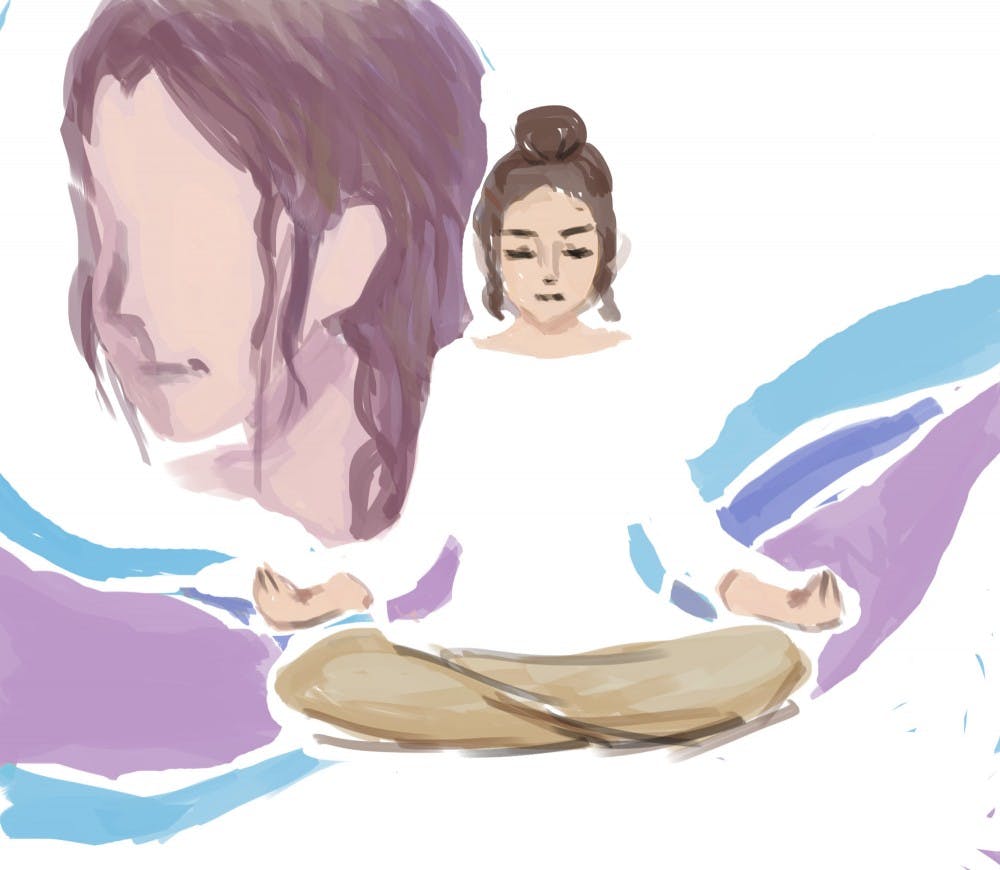One day, I came home to some sort of hipster who possessed knowledge of medication–free treatments. He was carrying this strange, golden, water–can–looking thing, which he filled with saline water. Then, he asked me to go with him to the bathroom.
Most children, at the age of ten, would be suspicious of such requests; they would question most things, actually—but at the time, I didn't think too much of it. And anyway, even if I had, I could’ve never guessed what he had in mind: drinking the salty brew, apparently, would make me vomit and rid my body of toxins. Despite my protests, turns out, that was my mother’s goal.
My mother had been doing yoga for many years. Her captivation with meditation was only rivaled by her fascination with Ayurveda and ancient healing methods. When she had a bad headache or sinus problem, she would refuse to take any medication, thereby willingly sacrificing a good night's sleep—both hers and my father’s. But neither the occasional ginger she slipped me, nor the cloves she would often brew into a disgusting concoction, could top the time she quietly sent a hippie–healing–man upon me.
I think it was at this moment that my trust in my mother developed a long and jagged crack. I always ate my broccoli when I was little. I ate Brussels sprouts too, without complaint. I did all of my homework, did well in school, was polite to my elders, and generally listened to my parents. My mother had little reason to enforce certain parenting rules since I did most things myself. That is, of course, until I came to Penn.
Here, I am just a tiny fish in an ocean of stress–heads just like me. I don't walk anywhere I can run, and my thoughts are generally going through my head at 100 miles a minute. Add to that the high levels of stress, which—I think everyone agrees—are disproportionate to our age, and I've become sure the pressure we’re subject to is going to drive us all crazy someday.
Mom didn’t pay much attention to this type of ever–cynical ranting. Instead, she took to relentlessly harping the critical need to practice meditation upon me throughout a large portion of my life, especially as I got older. She knew exactly how this kind of environment would affect my mental health. Sometimes, I feel like I hear my mom through the voice of the lady from the meditation club, who stops me on Locust from time to time.
I still haven’t checked it out. Nobody else around me seemed to be bothered by their environment, so why should I be? Like many, I don't understand the point of yoga, and am definitely opposed to the idea of "emptying my mind," since as students a lot of our hard work goes towards getting and keeping stuff in our minds.
On the occasions when my mother somehow coerced me into watching guided meditation YouTube videos, I would blankly stare at the ceiling just to satisfy her whims. Every so often, she would break the silence with the same three words: "empty your mind."
In those moments, I would realize that I was not meditating, and was in fact unconsciously thinking about what to eat for a snack when I would be released. I would then try and pull my thoughts back to what I was supposed to be thinking about: nothing.
My inability to slow down my thoughts, I realized, is probably typical of most Penn students, since it’s hard to take a mental step back from the cultures of comparison and competition. Of course, that could also be because stress is somewhat normalized here, so no one thinks too hard about getting out of it. And, even if we did, whether or not we stick to a “zen” lifestyle really depends on the success of the first encounters with some of its practices. Mine should not be taken as a reference point.
“Inhale,” “exhale” is what you would usually expect to hear in any yoga class. My first class was with a bunch of middle–aged ladies—some of whom I’m pretty sure fell asleep—and the instructor kept saying “deep annihilation,” or so I thought. My first attempt at emptying my brain was hijacked, and I kept it occupied while trying to figure out whether I was the only one who heard it wrong.
So, in that sense, a lot of times I thought about how the failure to get me into the “zen” mindset was not my mom’s, or CAPS’s, or even that of Penn’s hyper–competitive culture. It was, really, my own failure.
Mindfulness and stress–relief isn’t about emptying my mind, or clearing my head. It’s about understanding how and where to focus my thoughts. It doesn’t mean assuming the lotus pose and breathing through one nostril. As I withered under the disapproving gaze of the Mispronunciation Meditation Man, I shouldn’t have been trying to turn my brain off. I should have been trying to understand why I couldn’t slow down my thoughts, what was stressing me out, and what I could be doing to fix whatever was bothering me.
My mom would say, step back, reflect, and understand that you can’t control your surroundings—and, I’m starting to understand her words. When I’m being bombed with tests and interviews, I found it’s important to be able to identify tiny things you can do to escape from these aspects of your life, even just for a couple seconds. Forget reflection, even—the point is to just take a break.
Life here really is just one eventful day after another, and the only thing one can do is try to calmly get through it all however they can. I’m going to keep trying, partly for myself but mostly because my mom keeps forwarding me WhatsApp videos about the power of mindfulness, and I’m sick of them.







